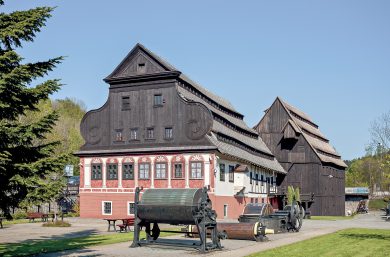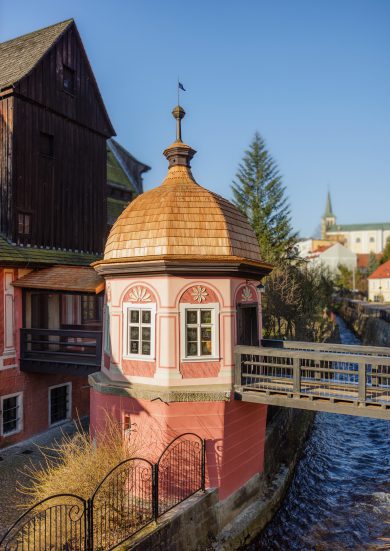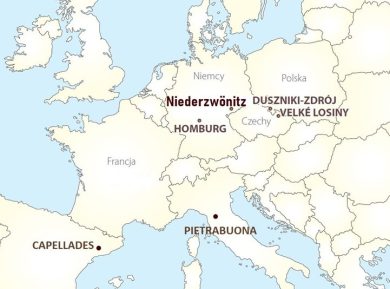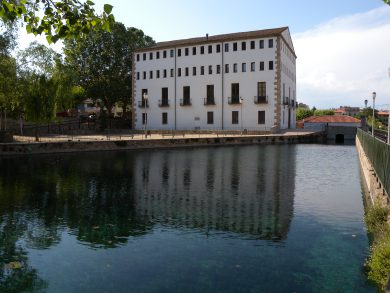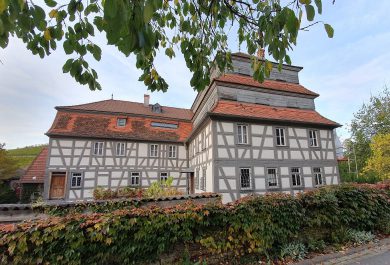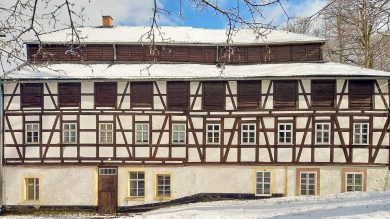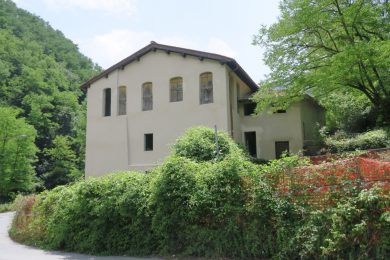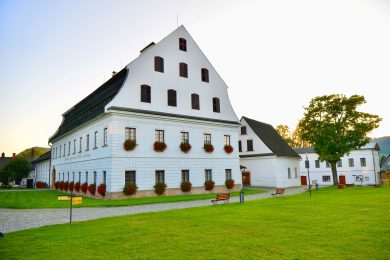Duszniki paper mill, along with other European paper mills, one step closer to UNESCO listing
A few days ago, a new entry for a project entitled European Paper Mills (from the era of handmade paper) was added to the information lists of Poland, the Czech Republic, Germany, Spain and Italy, maintained by the UNESCO World Heritage Committee. This means that the aforementioned countries will work together in the coming years to inscribe six historic paper mills on UNESCO’s World Material Heritage list.
The concept of inscribing paper mills on the UNESCO list was born several years ago at the Museum of Papermaking in Duszniki-Zdrój. The content of the information list entry is the result of numerous consultations conducted by the Ministry of Culture and National Heritage of the Republic of Poland with representatives of the ministries responsible for UNESCO list entries from the Czech Republic, Germany, Spain and Italy. The current consensus is a great success, as we have managed to convince many important people from conservation circles from Poland and four other countries of our concept. However, consensus submissions for national information lists are only the first important step. In the coming months, a preliminary nomination will be developed (it should be ready by September 2025), and then a proper submission to the UNESCO list. Thus, a huge amount of work lies ahead.
The project includes a group of European paper mills from the era of hand-pulled paper with unique historical and architectural qualities. These include paper mills in: Duszniki Zdrój (Poland), Velky Losiny (Czech Republic), Capellades (Spain), Pescia (Italy) and Homburg and Niederzwönitz (Germany).
The documented origins of the paper mill in Duszniki Zdroj date back to 1562, and the building is notable for its decorative architectural form and interior design, including unique polychromes on wood, with the biblical scene of Joseph being tempted by Putyfar’s wife. In Velké Losiny, handmade paper has been made since 1596, and the paper mill takes the form of a complex of buildings erected in the 18th and 19th centuries. The paper mill in Pescia was built in the first half of the 18th century and represents the architecture characteristic of the paper mills of the Genoa-Tuscan region. Paper mills from the German area in their present form were built in the 19th century and exhibit interesting individual features, such as the specific roof construction (Homburg) and the use of slate as a finishing material (Niederzwönitz), characteristic of the cultural region of the Rudawy Mountains. The paper mill in Capellades dates from the first half of the 19th century, and is distinguished by its use of tapia valenciana, an earthen structure characteristic of the historic construction of this part of Spain. All paper mills continue the tradition of making handmade paper.
It is also worth mentioning in passing that the museum has recently finalized an extremely important 3-year project to renovate the historic pavilion, which is the main entrance to the museum. This project was entered in the Conservation and Protection of Cultural Heritage category of the 44th edition of the competition organized by the Ministry of Culture and National Heritage and the National Institute of Museums Competition for the Museum Event of the Year Sybilla. This event is the most important form of recognition of the most outstanding achievements of Polish museums. The project of the Museum of Papermaking received a distinction of which we are extremely proud. Among the winners, the Museum of Papermaking is the only museum from Lower Silesia.
Prepared by: Emilia Dziewiecka, Maciej Szymczyk, Museum of Papermaking in Duszniki-Zdrój
Photos: Museum of Papermaking




